Struggling to conceive can feel overwhelming, but modern fertility treatments like IUI (Intrauterine Insemination) are giving countless couples new hope.
IUI is one of the most common and affordable assisted reproductive technologies (ART), often chosen before moving to advanced procedures like IVF (In Vitro Fertilization). It involves placing prepared sperm directly into the uterus during ovulation, increasing the chances of natural fertilization.
Many couples often ask, “Is IUI painful?” or “What is the success rate of IUI treatment?” These are valid questions, especially for those who are considering IUI for the first time.
The treatment is generally safe, minimally invasive, and widely recommended for conditions like unexplained infertility, low sperm count, poor sperm motility, cervical issues, or ovulation disorders.
With its lower cost, less invasive process, and decent success rate, IUI has become a popular fertility solution across India and worldwide.
What is IUI Treatment?
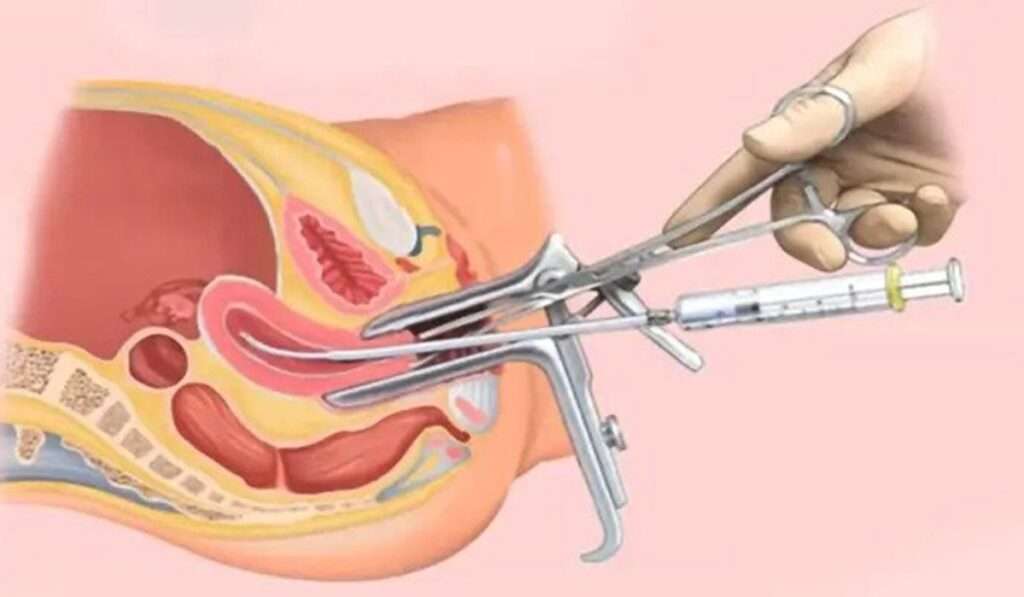
IUI (Intrauterine Insemination) is a type of assisted reproductive technology (ART) where washed and concentrated sperm are directly placed into the uterus to improve the chances of fertilization.
This fertility treatment is often recommended for couples facing unexplained infertility, low sperm motility, mild male factor infertility, or ovulation disorders.
Unlike IVF, IUI allows fertilization to occur naturally inside the fallopian tube. Many couples often ask, “Is IUI more effective than natural conception in cases of infertility?” IUI is considered a safe, affordable, and less invasive alternative to IVF for those trying to conceive.
Who is IUI For? (Indications & Eligibility)

Doctors often recommend IUI for couples who face mild to moderate fertility challenges. You may be a good candidate if you have:
- Male infertility factors – low sperm count, poor motility, or abnormal sperm shape.
- Cervical problems – thick cervical mucus making it hard for sperm to travel.
- Ovulation issues – irregular cycles or hormonal imbalances.
- Unexplained infertility – when no clear reason for infertility is found.
- Mild endometriosis – in some cases, IUI can help.
- Single women or same-sex couples – with donor sperm.
However, IUI is not recommended if you have blocked fallopian tubes, severe male infertility, or advanced maternal age where IVF may be more suitable.
IUI Treatment Procedure – Step by Step:
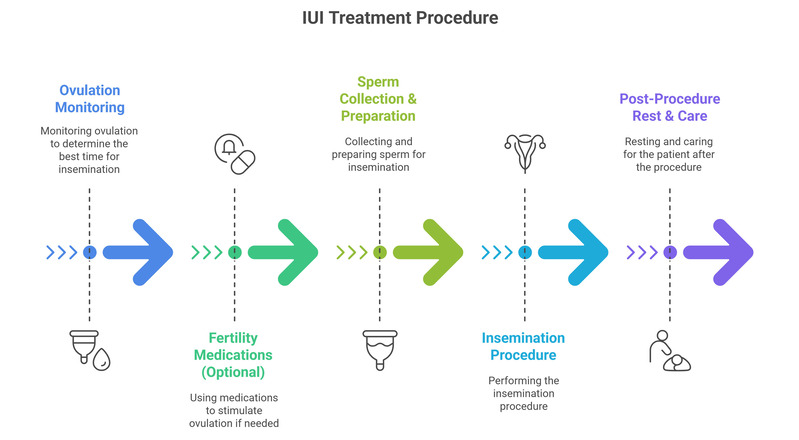
Wondering what actually happens during an IUI cycle? Here’s a simple breakdown:
Step 1: Ovulation Monitoring
Your doctor will track your ovulation through blood tests and ultrasounds. Sometimes, medications are given to stimulate egg production.
Step 2: Fertility Medications (Optional)
Medications like Clomid or gonadotropins may be prescribed to increase the number of eggs released, boosting the chances of conception.
Step 3: Sperm Collection & Preparation
On the day of the procedure, sperm is collected from the partner (or donor). The sperm is then “washed” in a lab to separate healthy, motile sperm from weaker ones.
Step 4: Insemination Procedure
The washed sperm is placed into a thin catheter and inserted directly into the uterus. The process is quick (about 10–15 minutes) and usually painless.
Step 5: Post-Procedure Rest & Care
You may be asked to rest for a short while after the insemination, but normal daily activities can be resumed almost immediately.
Also Read: How Does IVF Treatment Work Step by Step
Preparing for IUI Treatment:

Preparation is key to success. Before starting IUI, doctors may recommend:
- Medical tests – semen analysis, blood tests, and ultrasound scans.
- Lifestyle changes – eating a balanced diet, maintaining healthy weight, exercising moderately.
- Avoiding bad habits – smoking, alcohol, and excessive caffeine.
- Emotional readiness – as multiple cycles may be required before success.
What Happens After IUI? (Post-Procedure):
After IUI, many women wonder what to expect.
- Mild cramps or spotting may occur—this is normal.
- The “two-week wait” begins: you’ll need to wait about 14 days before taking a pregnancy test.
- Rest is advised, but you can return to normal activities the same day.
- Emotional support is crucial during this period, as anxiety levels can be high.
IUI Success Rate:
One of the most common questions is: How successful is IUI?
- Average success rate per cycle: 10–20%
- Cumulative success after multiple cycles: 30–40% after 3–4 attempts
- Factors that affect success:
- Age of the woman (higher success if under 35)
- Sperm quality
- Cause of infertility
- Use of fertility drugs
Must Read: Top Foods to Support Female Fertility and Conception
Risks & Side Effects of IUI:
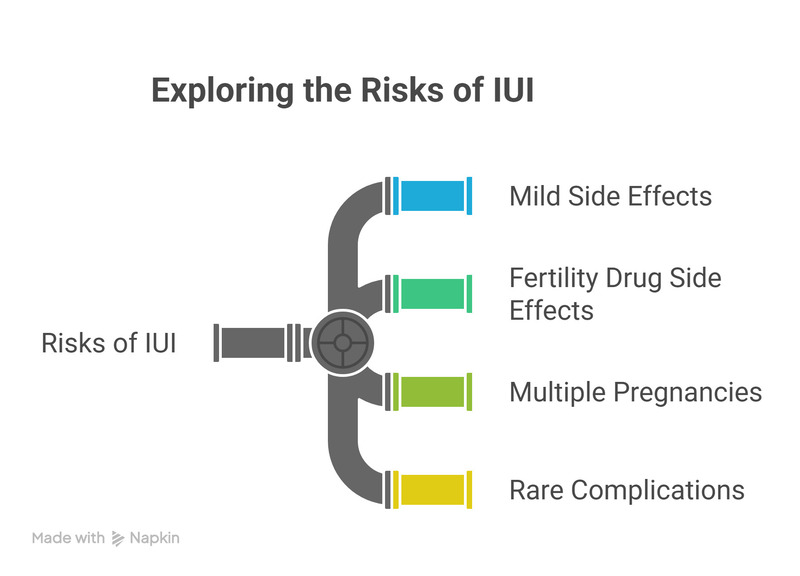
IUI is considered a safe procedure, but like any treatment, there can be some risks:
- Mild side effects: cramps, bloating, or spotting.
- Fertility drug side effects: mood swings, hot flashes, headaches.
- Multiple pregnancies (twins or more) – especially if fertility drugs are used.
- Rare complications: infection or ovarian hyperstimulation syndrome (OHSS).
Cost of IUI Treatment in India:
One major reason IUI is popular is its affordability compared to IVF.
- Average cost per cycle: ₹8,000 – ₹25,000 depending on the city and clinic.
- Additional costs: fertility medications (₹3,000 – ₹10,000), blood tests, ultrasound scans.
- Donor sperm charges: ₹10,000 – ₹15,000 extra (if needed).
Benefits of IUI Treatment:
- Less invasive compared to IVF.
- More affordable and accessible.
- Can be repeated multiple times.
- Suitable for a wide range of infertility cases.
Limitations of IUI
- Lower success rate compared to IVF.
- Not effective in severe infertility cases.
- May require multiple attempts before success.
IUI vs IVF – What’s Better?
Both IUI and IVF are fertility treatments, but they work differently.
| Factor | IUI | IVF |
|---|---|---|
| Procedure | Sperm placed in uterus | Eggs retrieved & fertilized in lab |
| Cost | ₹8k–₹25k per cycle | ₹1.5–₹2.5 lakhs per cycle |
| Success Rate | 10–20% per cycle | 40–60% per cycle |
| Invasiveness | Non-surgical | Surgical (egg retrieval) |
How Many IUI Cycles Are Recommended?
- Most doctors recommend 3–6 cycles before considering IVF.
- Chances of pregnancy increase with multiple attempts.
- If unsuccessful after 4–5 cycles, IVF is usually the next step.
Tips to Improve IUI Success Rate:
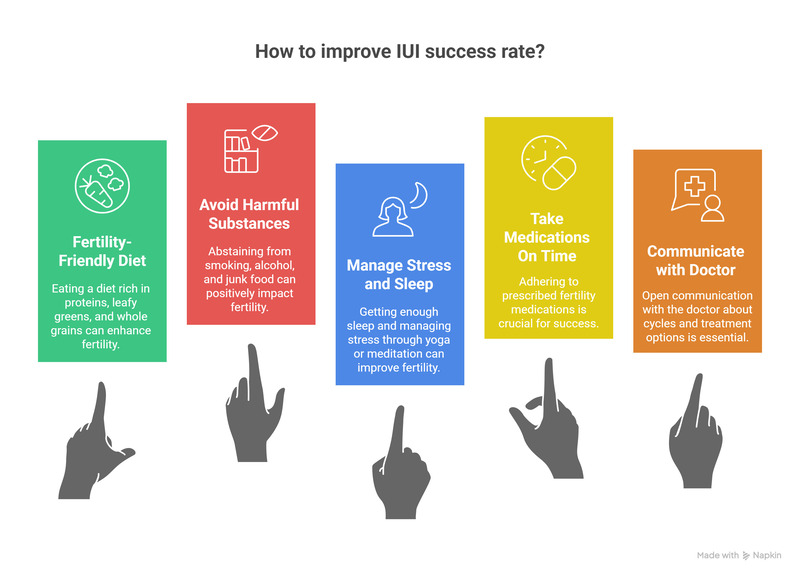
Want to boost your chances of success? Follow these tips:
- Eat a fertility-friendly diet rich in proteins, leafy greens, and whole grains.
- Avoid smoking, alcohol, and junk food.
- Get enough sleep and manage stress through yoga or meditation.
- Take prescribed fertility medications on time.
- Have open communication with your doctor about cycles and treatment options.
Emotional & Mental Health During IUI
Fertility treatments can be emotionally draining. Couples often face stress, anxiety, and disappointment during the journey.
- Stay connected with your partner for emotional support.
- Consider joining infertility support groups.
- Don’t hesitate to seek counseling if stress becomes overwhelming.
- Focus on self-care and positivity, even if results take time.
Video on Artificial Insemination (IUI):
Conclusion:
IUI is a simple, affordable, and effective fertility treatment for many couples struggling with infertility. While success rates vary, IUI often serves as a hopeful first step before moving on to IVF. With proper preparation, lifestyle changes, and medical guidance, IUI can bring couples one step closer to achieving their dream of parenthood.
If you’re considering IUI, consult a fertility specialist to understand whether it’s the right option for your case. Remember, infertility treatments are a journey—patience, persistence, and positivity can make all the difference.
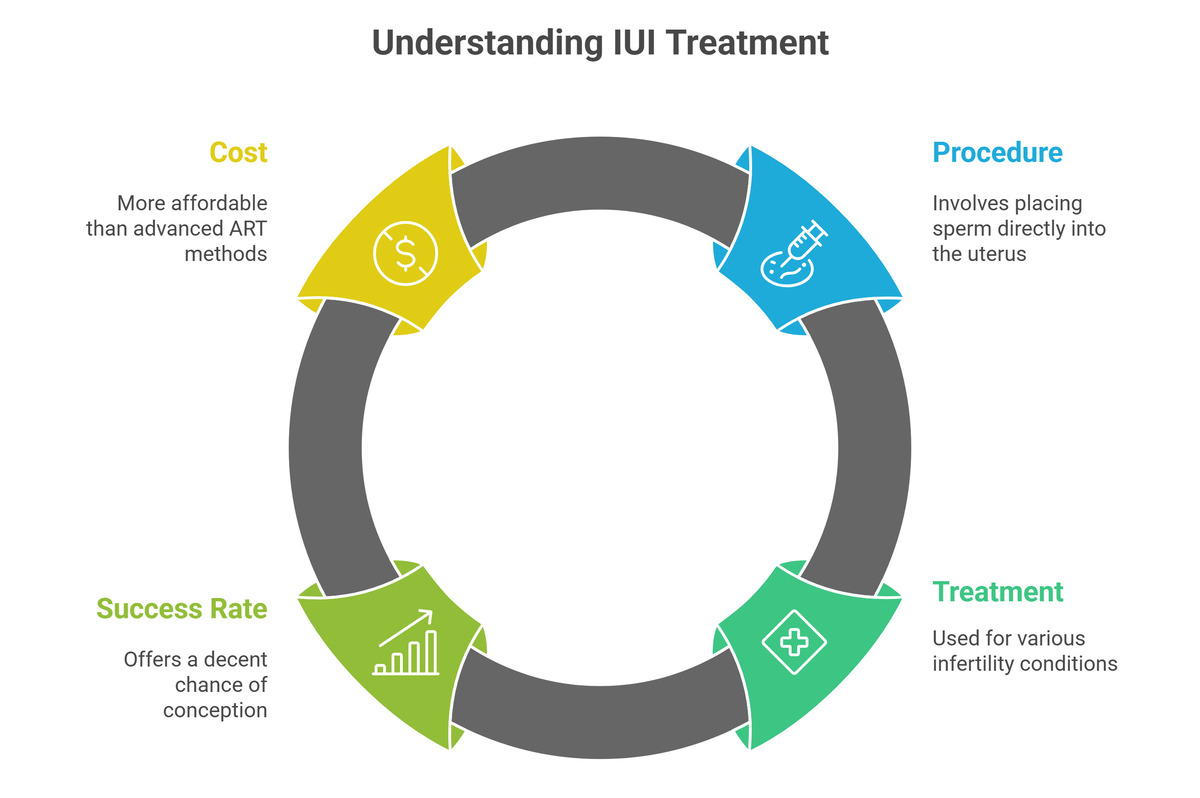
[…] couples in India, the demand for affordable assisted reproductive technology (ART), IVF, and IUI treatments is growing every year. However, the average cost of IVF in private clinics ranges between Rs. […]
[…] Must Read: IUI procedure step by step […]
[…] Fertility ServicesClinics provide end-to-end fertility care including IVF, IUI, ICSI, egg freezing, sperm freezing, donor programs, fertility preservation, and recurrent […]